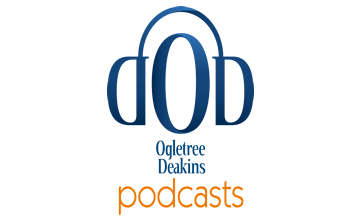Podcast: Play in new window | Download (Duration: 20:02 — 27.6MB) | Embed
Subscribe: Apple Podcasts | Spotify | TuneIn | More
In this episode of our new podcast series, The AI Workplace, Patty Shapiro (shareholder, San Diego) and Sam Sedaei (associate, Chicago) discuss the European Union’s (EU) Platform Work Directive, which aims to regulate gig work and the use of artificial intelligence (AI). Patty outlines the directive’s goals, including the classification of gig workers and the establishment of AI transparency requirements. In addition, Sam and Patty address the directive’s overlap with the EU AI Act and the potential consequences of non-compliance.
